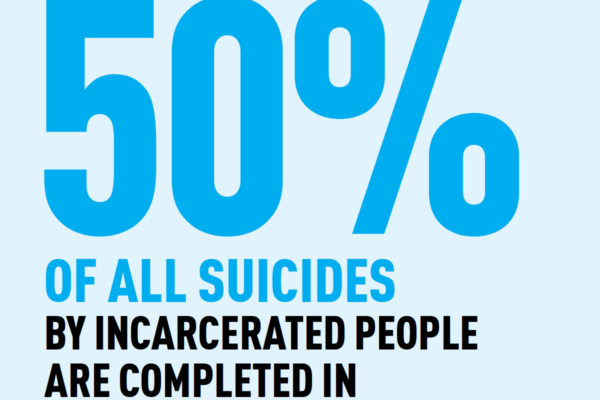by Tyler Wilson, a former correctional officer at the Nebraska Dept. of Correctional Services
Solitary confinement is almost taboo to talk about. No one wants to think about what happens in the secluded areas of our prison system. But various studies have confirmed what some of us already knew: keeping people in solitary is an urgent mental health and public safety issue. And unless we talk about what is happening behind the walls of our prisons, this inhumane treatment will continue. This is why I testified in support of LB739, a bill that is before the Unicameral that would limit the use of solitary confinement.
We as Nebraskans have a very broken prison system that needs to be addressed and it needs addressed sooner than later. One major issue crippling our prison system is solitary confinement is solitary confinement, a 10x13 ft. cinderblock box with no windows. That one remaining hour is spent wearing 5 lbs. of restraints while walking into a human-sized kennel with a chain-link roof and a tower officer armed with a weapon used for launching chemical agents, a mini rifle and rubber bullets. Solitary confinement was designed for the legal offenders who can’t conform to the rules and regulations of prison. Legal offenders are sentenced to prison, not solitary confinement.
As a correctional officer at the Nebraska State Penitentiary, I have dealt with the “worst” criminals in our state’s history. Innmates sit in those cells for months at a time. I have seen grown adults screaming because the voices in their heads just won’t stop. And putting those people in a box by themselves only exacerbates their mental health concerns. With the state’s budget crisis, funding for mental health in our prison systems is at an all-time low, which only compounds the issue. With overcrowding at an all-time high and staff retention at an all-time low, we are on the brink of a crisis. I want this to serve as a call to action for we as Nebraskans to stand side-by-side with our elected officials to help them fix our prison system. Equality before the law still applies to humans in prison but for some reason Director Frakes has lost sight of that.
Prison takes its toll on both staff and inmates. Staff walk out of that facility on a daily basis with severe PTSD caused by the severe trauma from working in prison and offenders have been released from prison as a severely broken individual with no sense of hope for their mental health, causing them to self-medicate in unhealthy ways. Hardened criminals have told me “I wouldn’t wish solitary on my worst enemy” and these are gang members talking about a rival member.
If we are going to keep our solitary confinement system in place, we need to heavily reform it whether it’s a limit to the amount of time that is spent in solitary or provide a mandated mental health treatment plan for all solitary confinement inmates. We need to seriously take a long hard look into our solitary confinement procedures at the Department of Correctional Services.
The entire solitary confinement issue is a huge public safety concern, considering that the majority of inmates will be released back into the public with a severe mental health detriment caused by solitary confinement. They will be our neighbors and enter the work force. They may also sit in the pew in front of you at church. The job of Correctional Services is to rehabilitate offenders to become productive members of society, and we are falling short on that duty to serve all Nebraskans equally.

